Why good government needs philanthropy featuring Deval Patrick and Wes Moore with Jonathan Capehart
Transcript
[Why good government needs philanthropy. Deval Patrick, co-managing director, Double Impact Fund, Bain Capital. A middle-aged Black man with a shaved head in a gray-blue jacket and light gray pants. Wes Moore, CEO, Robin Hood. A Black man wearing a dark gray suit and blue tie. Jonathan Capehart, journalist, Washington Post. A Black man wearing a navy blue blazer and glasses.]
ANNOUNCER: Please welcome Deval Patrick, Wes Moore, and Jonathan Capehart. [applause]
JONATHAN CAPEHART: Thank you for being here, and—just jump right into this conversation, because we know that philanthropy alone can’t fix problems, that government alone cannot fix problems, that the private sector alone cannot fix problems. And so, Wes, I want to start with you, to find out how do you see the role of government in your work with the Robin Hood Foundation?
WES MOORE: I see the role of government as pretty twofold. First, I think the role of government is—is the role of partner in the work, where, you know, we understand that as a foundation in the world of philanthropy that our capital should be patient, but it’s not going to be permanent. And so there’s a role of being able to be the risk capital. There’s a role of being able to go back and de-risk things that you can then pass off to government partners. So, you know, you look at the history of Robin Hood, where, for example, we started funding needle exchanges before anyone else was funding them, and we funded it because the data continued to show us and tell us that if you could fund needle exchanges, you actually could potentially have a real impact on the rise in HIV/AIDS. Well, Robin Hood doesn’t fund needle exchanges anymore. Nobody does. The reason is because the federal government does it, but the federal government was never going to be first money in. So, we see government as a partner, in the fact that we can put in initial capital and then have them work to scale. But government is also complicit in the level of inequality that we have in our society. You know, the fact that we have 9.8 million children living in poverty is a direct result of government policies. And the truth is, when we say, well, poverty’s a choice, it is. It’s a choice of our society to allow poverty. It’s a choice of our government to put in policies that allow that level of disconnection and that level of disillusionment.
JONATHAN CAPEHART: Is that the challenge that you face as a philanthropy working with government—that is, to get government to change the way it does things? So, to see that the ideas and the policies and principles that you are trying to put forth are actually things that government should be partnering in?
WES MOORE: You know, it’s interesting. I actually see that as a bigger challenge amongst philanthropy, because I think that philanthropy oftentimes doesn’t realize what a voice and what a role it has in actually changing policy. I think, oftentimes, philanthropy looks at policy as something that they do over there, or that policy is something that, well, we don’t do that. We’re grant makers. Got it. At the same time, how are we going in understanding the things that we are saying and not saying are fundamentally addressing what were happening? You know, we just put together a public statement around the proposed changes around SNAP, for example.
JONATHAN CAPEHART: Right.
WES MOORE: We in our history have funded upwards of around $100 million in emergency food programs as a singular organization. We have a program right now called Single Stop that we put together. We disperse around $13 million a year for Single Stop. Here’s the reality. If those proposed regulations happen, about 3.1 million people will be pushed into poverty. Nothing has changed about their situation. They’ve done nothing wrong. But, out of nowhere, someone overnight could be pushed into poverty. If philanthropy doesn’t understand its role in pushing back against that, then philanthropy is not using its full power wisely.
[applause]
DEVAL PATRICK: I think there is an appetite for innovation in public policy, not just in government but among all of us. But successful innovation, I think, requires we have an atmosphere for failure. Politics punishes failure. And so I think we get less innovation than we like in public policy. So, to your question about how philanthropy can help change government, I’d love to see ways in which philanthropy support opportunities for everyone to serve nationally, because I think there is something that comes to the person as well as the community from national or community service. And a large part of it is just being with people we only think we know through their cartoon image in the media. And as we get to know each other, then maybe some of these things that seem like deep and permanent divisions can be overcome.
JONATHAN CAPEHART: Deval Patrick, Wes Moore, thank you very much.
DEVAL PATRICK: Good to be with you. Thank you everyone.
[applause]
[New gospel of wealth. What does #GenerosityToJustice look like to you? Ford Foundation dot org forward slash new gospel.]
Accessibility Statement
- All videos produced by the Ford Foundation since 2020 include captions and downloadable transcripts. For videos where visuals require additional understanding, we offer audio-described versions.
- We are continuing to make videos produced prior to 2020 accessible.
- Videos from third-party sources (those not produced by the Ford Foundation) may not have captions, accessible transcripts, or audio descriptions.
- To improve accessibility beyond our site, we’ve created a free video accessibility WordPress plug-in.
Wes Moore, CEO of Robin Hood, and Deval Patrick, managing director and co-managing partner of Bain Capital, along with the Washington Post’s Jonathan Capehart, discuss why government and philanthropy need to work together.
“I think the role of government is the role of partner. We understand as a foundation in the world of philanthropy that our capital should be patient, but it’s not going to be permanent. There’s a role of being able to be the risk capital…that you can then pass off to government partners.”
– Wes Moore
Learn more about New Gospel of Wealth
Other videos in this series
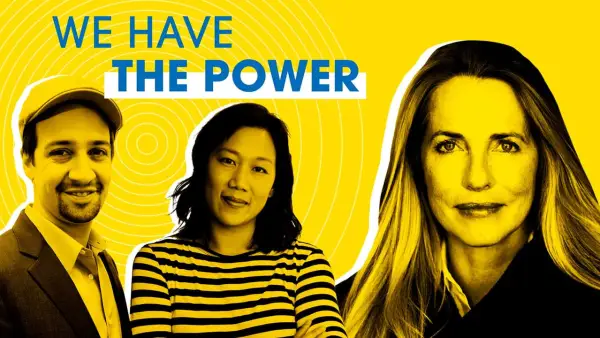
Let’s rethink giving
How can we reimagine philanthropy so that we create a future where there is justice and dignity for all? What are the root causes of the issues and how do we encourage the participation of many and not just a few?
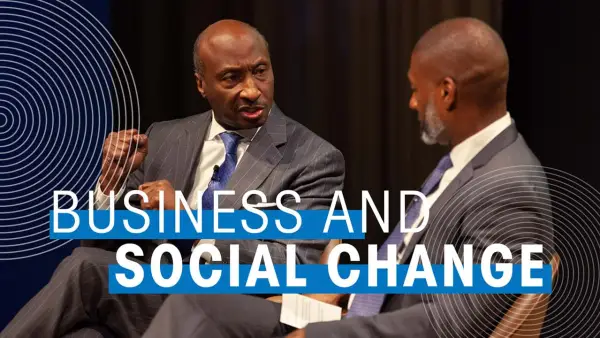
The business of justice featuring Kenneth Frazier and Charles Blow
Kenneth Frazier, CEO of Merck and Co, believes one of the greatest injustices in our society is the health disparities experienced by women of color. A zip code is more likely to determine health outcomes than genetic code. Frazier uses philanthropy to address mortality rate and wants to see more medical personnel listen to their women patients and patients of color.
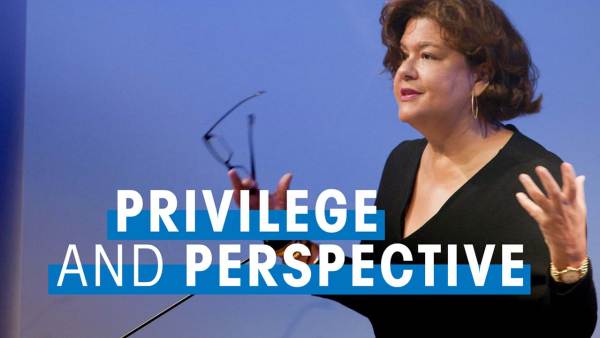
The privilege of perspective featuring Elizabeth Alexander
Elizabeth Alexander, president of the Andrew W. Mellon Foundation, on art, activism, and acknowledging adversity.
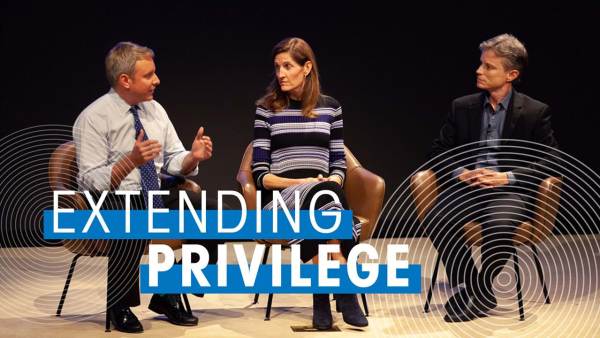
Extending privilege featuring Valerie Rockefeller and Henry Ford III
Henry Ford III, trustee of the Ford Foundation, and Valerie Rockefeller, chair of the Rockefeller Brothers Fund, discuss transforming philanthropy for the 21st century. The families have seen the value of impact investing and believe in partnerships to increase the difference that can be made.
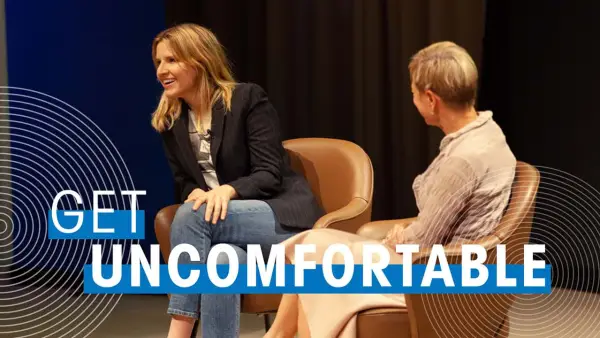
Getting proximate featuring Tara Westover and Hilary Pennington
Tara Westover, author of “Educated,” sees a disconnect between the rural and urban parts of the United States. She believes philanthropists need to be more proximate to the issues they care about, and that spending time with people who aren’t like you is key to disrupting inequality.
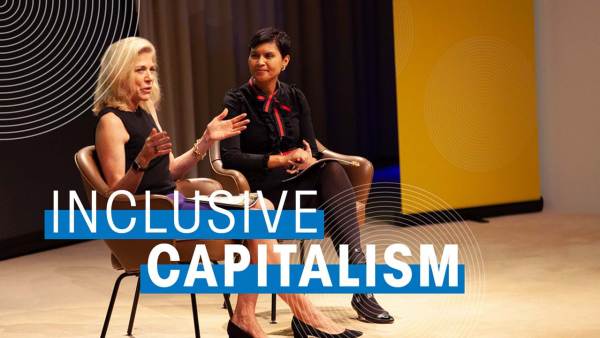
Can capitalism ever really be inclusive? featuring Lynn Forester de Rothschild and Stephanie Mehta
The top 1 percent of the United States controls 42 percent of the national wealth. Lynn Forester de Rothschild, founder of the Center for Inclusive Capitalism, explains that reimagining the economy and making it a sustainable, inclusive system that leads to strong economic growth requires reform.
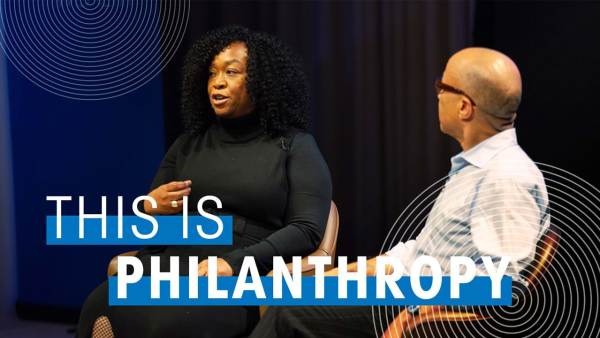
This is what a philanthropist looks like featuring Shonda Rhimes and Darren Walker
Writer and producer Shonda Rhimes has seen the power storytelling has to make change through her work, which centers marginalized people and issues. Rhimes believes philanthropy sets an example others can follow, and says supporting organizations that are already on the ground doing the work is key.
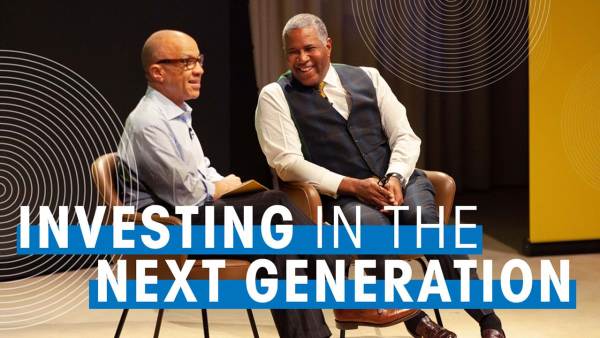
Catalyzing the potential of our time featuring Robert Smith and Darren Walker
Through philanthropy, Robert Smith, CEO of Vista Equity Partners, has alleviated the burden of student debt for a graduating class. He says private philanthropy can help address public policy challenges, such as student loan debt, and is a disruptive opportunity that liberates people to contribute to society in positive ways.
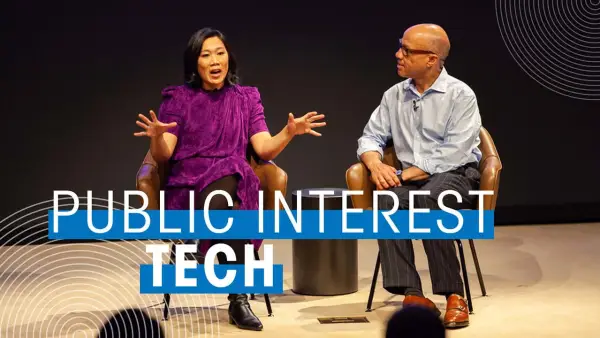
Tech funders changing philanthropy featuring Priscilla Chan & Darren Walker
The top 1 percent of the United States controls 42 percent of the national wealth. Lynn Forester de Rothschild, founder of the Center for Inclusive Capitalism, explains that reimagining the economy and making it a sustainable, inclusive system that leads to strong economic growth requires reform.
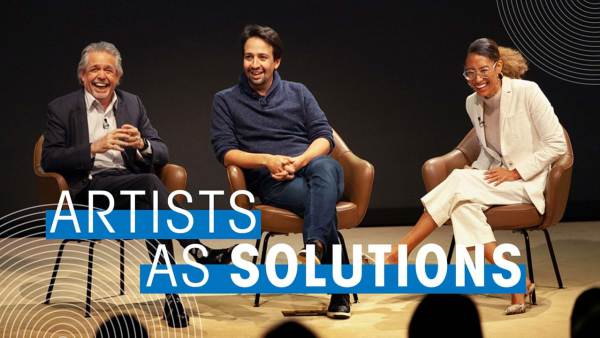
Why artists shouldn’t stay in their lane featuring Lin-Manuel Miranda, Luis Miranda Jr. and Elaine Welteroth
Composer and actor Lin-Manuel Miranda believes all art is political. He and his father, Luis A. Miranda Jr. of the MirRam Group, see the value philanthropy has to empower communities that may have been neglected, and allow them to share their stories through the arts, like Puerto Rico did after Hurricane Maria.
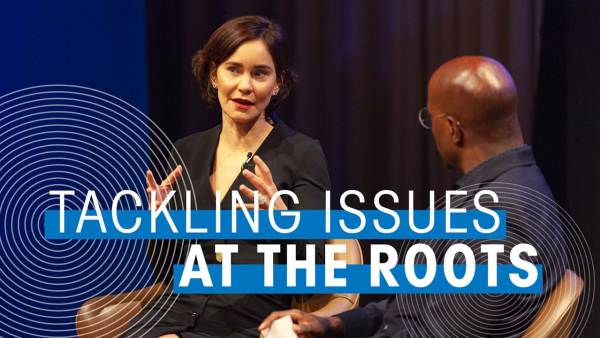
Good philanthropy needs government featuring Laura Arnold and Van Jones
Laura Arnold, co-chair of Arnold Ventures, believes policy change is the lever that will lead to sustainable change. She says we need to attack the systems that are creating the injustices we see, like criminal justice. Philanthropy can create better alternatives that governments can adopt.
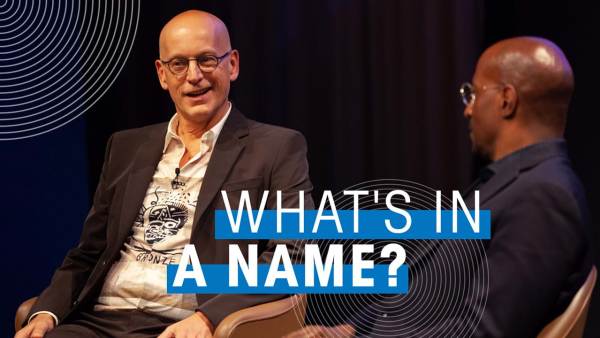
The power of a name featuring Jon Stryker and Van Jones
As a philanthropist, Jon Stryker, president of the Arcus Foundation, believes the act of naming gives power and influence to the work that is supported through his gifts. His philanthropy supports those on the frontlines of justice, providing resources and power to those who need it most.
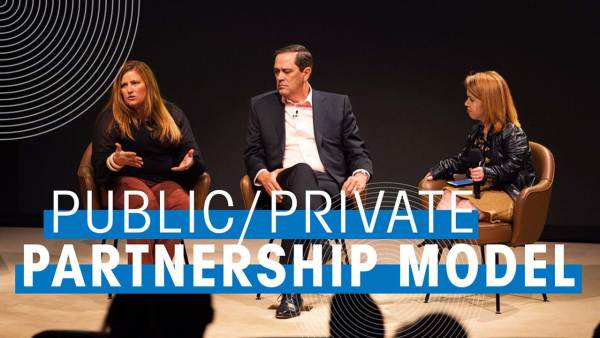
Public-private partnership: A new model for lasting impact featuring Jennifer Loving and Chuck Robbins
Jennifer Loving, CEO of Destination: Home, says a public-private partnership, like the one between her nonprofit and Cisco, headed by Chuck Robbins, can help create a model for the future of philanthropy, and tools like social bonds can help address some of the biggest crises of our time.
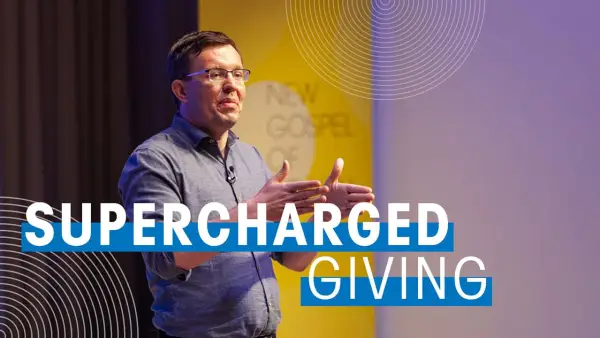
The new power of philanthropy featuring Henry Timms
CEO of Lincoln Center Henry Timms asks how philanthropy can supercharge civic engagement. Timms, who started Giving Tuesday, says trust-based philanthropy needs to shift from generosity to justice, driving more participation from more people, and encouraging meaningful ways to participate and collaborate.
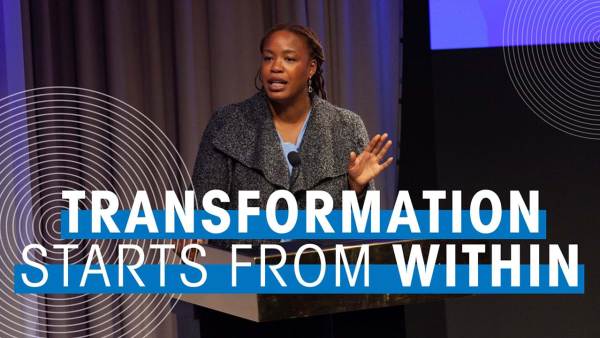
Transforming organizations from the inside featuring Heather McGhee
Heather McGhee, distinguished senior fellow at Demos, shares her experience of working to make the Demos think tank more diverse and led by people of color. Institutional racism, however slight, drives inequality, she says, so transformation needs to be a must-have and not a nice-to-have.
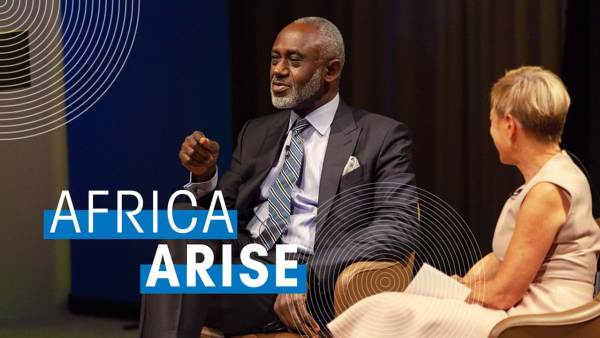
Africa, your time is now featuring Gbenga Oyebode and Hilary Pennington
Ford Foundation trustee Gbenga Oyebode has seen the value of impact investing on the African continent. He believes philanthropy should not just be giving, but investing with a social impact and an economic return. Giving is inherently part of African culture, but needs to be more strategic and collaborative.
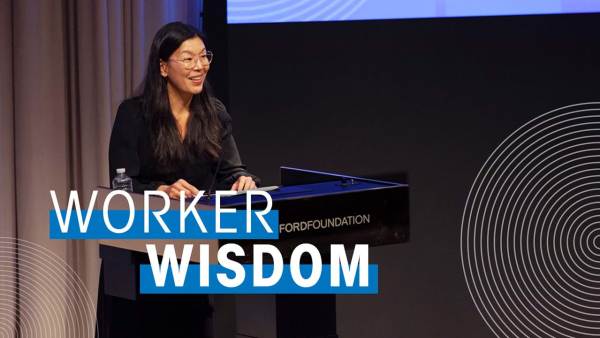
Bringing hidden labor to light featuring Ai-Jen Poo
Ai-jen Poo, executive director of the National Domestic Workers Alliance, says the sector of caregivers and domestic workers continues to grow. Building a future of work that works for all is centered on justice-based philanthropy and not a generosity model.
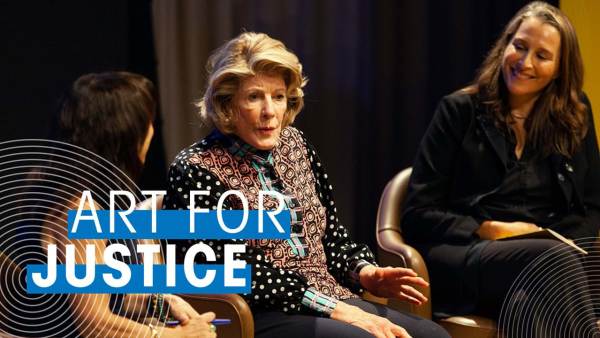
Art for Justice featuring Agnes Gund and Catherine Gund with Maria Hinojosa
The Art for Justice fund was created to help end mass incarceration. Founder Agnes Gund says philanthropy is about addressing issues like this. Catherine Gund believes art has an important part to play in the fight for racial justice and can help change the policies that led to mass incarceration.
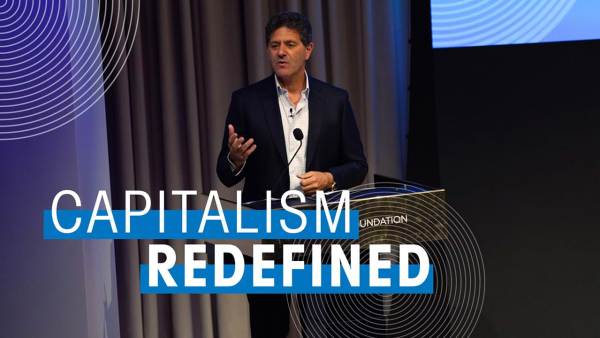
Capitalism redefined featuring Nick Hanauer
Entrepreneur Nick Hanauer asks us to reimagine the economy. He believes we need to change our beliefs about the economy to create a more just, more equitable society for all. By choosing better economic beliefs, we can change society for good.
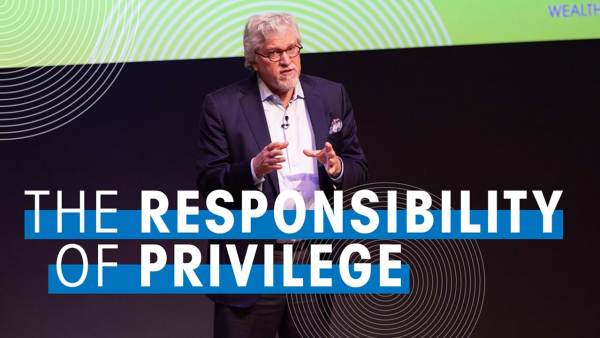
On using power and privilege for change featuring Jeff Raikes
Jeff Raikes, co-founder of the Raikes Foundation, says dismantling racism requires philanthropy to ditch its colorblind approach. People in power need to acknowledge that privilege is invisible to those who possess it. Privilege and power need to be transformed into a force for changing our society for the better.